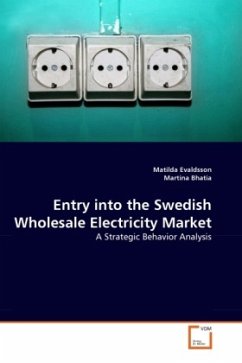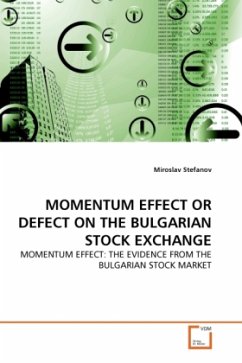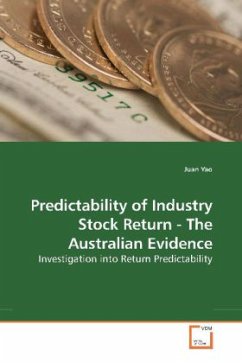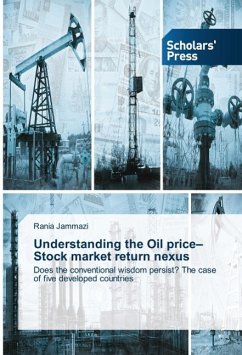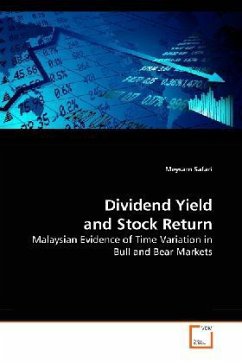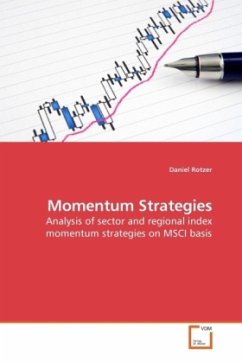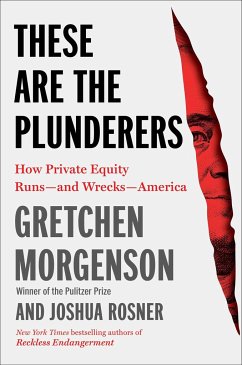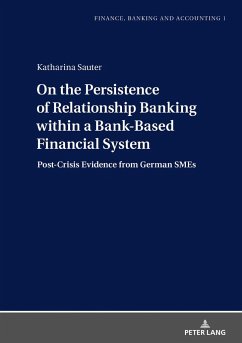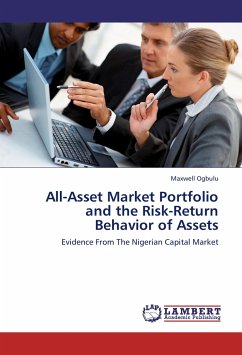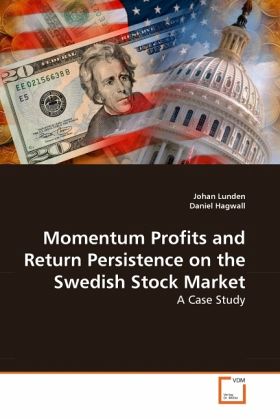
Momentum Profits and Return Persistence on the Swedish Stock Market
A Case Study
Versandkostenfrei!
Versandfertig in 6-10 Tagen
32,99 €
inkl. MwSt.

PAYBACK Punkte
16 °P sammeln!
Within the field of momentum effects, we investigates whether a zero-investment strategy, where a short position in a portfolio of previously bad performing stocks finance a long position in a portfolio of past well performing stocks, generate positive returns in the period 1987 to 2008. The primary focus is to examine whether it is possible to earn abnormal returns from such a strategy and if these returns can be explained by various types of risk measures. We also investigate if we can observe any kind of persistence pattern among the included portfolio companies. We find that several strate...
Within the field of momentum effects, we investigates whether a zero-investment strategy, where a short position in a portfolio of previously bad performing stocks finance a long position in a portfolio of past well performing stocks, generate positive returns in the period 1987 to 2008. The primary focus is to examine whether it is possible to earn abnormal returns from such a strategy and if these returns can be explained by various types of risk measures. We also investigate if we can observe any kind of persistence pattern among the included portfolio companies. We find that several strategies yield significant momentum returns, especially those strategies having an evaluation period of 6-12 months and a holding period of 1-6 months. When adjusting for various conventional measures of risk, we find that many of the strategies with previously significant returns continue to generate significant returns even after the risk-adjustment. Traditional models, such as CAPM and the Fama-French model, proved to explain momentum returns to some extent whilst adding a coskewness factor to the latter model only slightly improved the results.



